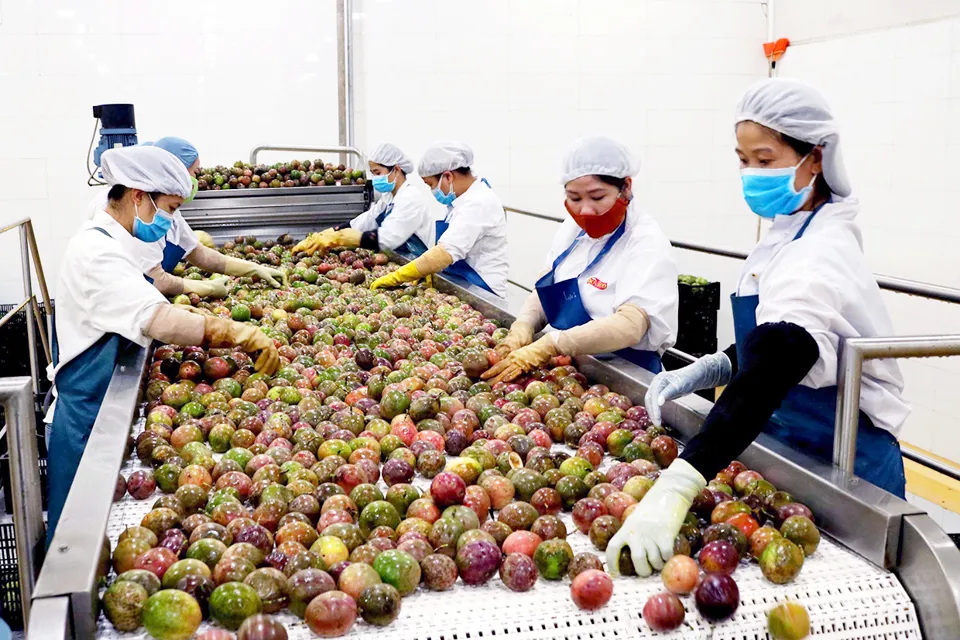Vietnam’s veggie exports top US$3 billion in H1
The figure could go up to US$7 billion this year, which is $0.5 billion to $1 billion above the planned target.
Vietnam's agricultural exports are estimated to reach US$3.4 billion in the first six months of the year, marking a 28% increase compared to the same period last year.
| Processing fruits for export at Dong Giao Food Export Company. Photo: Duc Thuy/The Hanoi Times |
According to the Vietnam Fruit and Vegetable Association, preliminary customs data shows that durian, dragon fruit, bananas, and longans are major contributors to the growth in fruit and vegetable exports.
Key markets recorded growth of 10-50% compared to the same period in 2023, with the exception of the Netherlands, which saw a decrease in purchases.
China, Thailand, and South Korea remain significant markets, with imports from these countries increasing by 30-60% by the end of May compared to the same period last year. Thailand spent US$74.5 million and South Korea spent US$136 million on Vietnamese fruits and vegetables.
Meanwhile, China purchased US$1.7 billion worth of Vietnamese agricultural products in the first five months, a 33% increase year-on-year.
According to Dang Phuc Nguyen, Secretary General of the Vietnam Fruit and Vegetable Association, Vietnamese agricultural products have a competitive edge in the Chinese market due to geographical proximity and similar culinary cultures.
Durian is among the agricultural products highly favored in this large market. In April, Vietnam overtook Thailand as the largest exporter of the fruit to China for the first time, shipping 32,750 tons. Vietnamese and Chinese authorities have completed technical negotiations and will soon sign a protocol for exporting frozen durian. In addition to durian, products like medicinal herbs, coconuts, and frozen fruits will also be facilitated by China in the near future.
However, China, the world's second-largest economy, has tightened import standards on origin, food safety quality, and animal and plant disease control. Recently, Vietnamese agricultural products have frequently been cited for quality issues.
Therefore, Nguyen from the Vietnam Fruit and Vegetable Association emphasizes that businesses must strictly adhere to regulations, ensuring high-quality exports to maintain credibility. "Irresponsible business practices that damage the industry's reputation need to be strictly penalized," he suggested.
Despite these challenges, Nguyen forecasts that fruit and vegetable exports will continue to grow by 15-20% this year. If the opportunities provided by the protocols are effectively utilized, fruit and vegetable exports could reach $7 billion this year, which is $0.5 billion to $1 billion above the planned target.












